- Home
- Roger Taylor
Farnor Page 11
Farnor Read online
Page 11
The two dogs scrabbled under the gate and ran after him, tails wagging.
As he walked, the dogs came and went, running twenty paces for his every one and generally terrorizing the nocturnal wildlife. At the roadway he debated for a moment and then turned left, northwards.
A short walk would bring him to the top of a rise from which, during the day, more of the castle would be visible. Perhaps he might be able to see some sign of a camp—distant fires burning, perhaps even voices carried through the still night air.
When he was about halfway up the rise the two dogs bounded up to him once again. Abruptly they stopped and, lowering their heads, began to growl.
'What's the matter?’ Farnor asked, crouching down between them and following their gaze.
Ahead, the road ended as a black hummock against the moonlit sky where it topped the rise. Trees on either side waited, motionless.
Then, slowly, the black hummock began to change shape.
* * *
Chapter 9
Farnor's eyes widened in terror as the silhouetted crest of the rise ahead of him changed into moving, swaying life. Visions of the sheep-worrier, monstrous and malevolent, emerging from some dark and terrible lair for vengeance against its pursuers rushed in upon him before he had time to think more calmly what might be happening.
Though his legs were trembling in readiness for flight, no instruction reached them and as the shadow grew Farnor remained transfixed, his arms around the hackled shoulders of his dogs. He could feel the vibration of their growling, but all he could hear was the sound of his own heartbeat pounding in his ears.
The shadow continued to grow, then:
'Ho, you there!'
The voice cut through the internal din of his terror.
Part of him queried, me? Another part advised a hasty retreat. But yet another at last identified the eerie shapes ahead. They were riders, he realized with relief. The gatherers returning, presumably.
'Yes?’ Farnor said, in a voice that surprised him by the absence of tremor.
'Come here.'
'What do you want?'
The shadows shifted. ‘Come here!’ the voice repeated irritably. It sounded unusual and there was an inflection in it that Farnor did not like.
For a moment he again considered fleeing, or, more correctly, slipping away. This was his land and he knew it intimately, by day or by night. He could disappear into it on the instant and make his way back to the farm in secret to draw Gryss and his father into this strange happening.
The thought of this option calmed him.
But then, he reflected, what had happened?
Nothing, (he glossed over his initial terrified response), except that he had been addressed by a stranger who was certainly benighted and almost certainly lost. Further, the stranger was a gatherer, a King's man whose goodwill might prove important over the following days. He would get short shrift from either Gryss or his father if he abandoned such a man by running off into the night like a frightened child.
'Stay,’ he commanded the dogs. They lay down but Farnor was glad of their snarling presence, for all he had resolved to play ambassador for the valley. A horse whinnied and Farnor heard what he took to be an oath, though the words were unfamiliar.
As he walked forward, he made out someone dismounting and coming to meet him.
A dozen paces further and he found himself in front of a tall, slightly slouching figure. The moonlight threw deep contrasting shadows across the man's face, and Farnor could form no impression of how old he might be or even what he looked like; or anything about him, for that matter.
Except his eyes. He could not see them for they were sunken and dark, but he knew they were narrowed and searching. He tried to stare into them but the effort made him uneasy.
'You live around here, boy?'
The appellation made Farnor stiffen indignantly, but he offered no rejoinder. And again the voice sounded strange. The man pronounced his words in a peculiar manner, and with a hesitation that was at odds with the confidence of his physical presence.
'Yes,’ Farnor replied.
'We need a healer,’ said the man. ‘Some of my men are sick. Where can I find one?'
Farnor felt as if the sun had come out. He became almost garrulous.
'You're lucky,’ he said. ‘The healer's at our house right now. Come with me. I'll take you to him.'
The man tilted his head to one side as if he were listening very carefully.
'How far?’ he asked after a moment.
'A few minutes’ walk,’ Farnor answered, pointing back down the road.
Once more the man seemed to be pondering something, then, with a flick of his hand, he said, ‘Lead.'
For some reason he could not have explained, Farnor made a slight bow by way of acknowledgement of this instruction. The man turned back to his still-mounted companions and beckoned them forward. One of them spoke.
Farnor's mouth dropped open. The man was talking gibberish! There was a brief return of his earlier alarm. A long-forgotten childhood tale of night demons which whisked away unwary travellers to become slaves in some terrible world of their own making, passed briefly through his mind. Then it came to him that these men were not merely King's men from the distant capital, but foreigners: people from an entirely different land.
What was the word that he had heard Yonas use?
Mercenaries, that was it. It had a splendid sound to it, though, as he recalled, Yonas's mercenaries were sometimes loyal and true, other times treacherous and deceitful. But that was Yonas. This was real life. And the King would surely only have selected the finest men to act as his gatherers.
He put aside his thoughts as the other riders reached him and, mounting his horse, the first man motioned him on.
Farnor clicked his tongue and the dogs left their vigil and came to his side. They seemed to have lost any relish for their nocturnal rampaging however, and, tails uncertain, ears pricked, they stayed close by Farnor as he walked ahead of the riders.
For the most part the riders were silent, though there was an exchange at one point that was ended by a sharp command from their leader. Both, again, in their own alien language.
Farnor was enthralled as he walked ahead of these strangers like some mysterious shepherd.
Reaching the farm he opened the gate and the men rode past him into the brightly lit yard. There were six of them and it seemed to Farnor that on entering the light they became uneasy. They spread out and glanced around a great deal as if looking for something ... or, perhaps, someone. Their horses, too, became restive and the night was soon filled with the sound of hooves clattering nervously on the well-packed stone that surfaced the yard. The light from the sunstone lantern took up the agitation and danced great shadows about the yard and over the walls and roofs of the enclosing outbuildings. One of the men spoke anxiously to the leader, who muttered something and swung down from his horse.
'Wait here,’ Farnor said to him. ‘I'll get my father.’ But the noise of the riders entering the yard had already brought Garren and Gryss to the door in some alarm, with Katrin at their back.
'What's the matter? What's happening?’ Garren said to Farnor as he took in the scene.
'Are you the healer?’ the leader of the riders asked Garren before Farnor could reply.
Garren stared at him, taken aback by the strange accent. Gryss stepped around him quickly. ‘Foreigners,’ he murmured to Garren by way of explanation, then, addressing the question, replied, ‘I have some small knowledge of healing. Has someone been injured?'
The man waved his hand northwards. ‘At the castle there. Some of my men are sick,’ he said.
Gryss nodded. ‘A few of them looked none too well when you rode through the village,’ he said, and, briefly the querulous physician, ‘You should have spoken then. I've no equipment or medicines with me here.'
'Come anyway,’ the man said. Farnor thought he heard a threat in his voice, but decided it was probably the pecu
liar accent.
Gryss simply nodded and went over to his horse. ‘I'll come with you,’ Garren said, walking after him, but Gryss shook his head. ‘No. You stay here with Katrin and Farnor. If it's not too late I'll call in on my way back.'
The two men looked at one another for a moment.
'Call anyway,’ Garren said, in unconscious imitation of the riders’ leader.
As the riders left, Garren frowned. ‘What's the matter?’ Farnor asked. ‘I did right to bring them here, didn't I? It'll be good for us to have helped them, won't it?'
Garren's frown darkened. ‘I suppose so,’ he said thoughtfully. ‘But why would they need six men to find a healer?’ He glanced at his son and a smile forced its way to his lips. ‘Yes, you did right,’ he said. ‘It was a happy meeting. It could well do us some good if we end up having to negotiate with these people about the tithe.'
With casual firmness, he shepherded his wife and son inside.
As he closed the door, however, he peered out into the darkness beyond the yard. ‘Foreigners?’ he mouthed silently, his face puzzled and grim.
* * * *
'A little slower if you don't mind,’ Gryss said to his companion, speaking carefully and clearly. ‘I'm no rider at the best of times, and this horse isn't mine.'
The man reined his horse back a little.
'My name's Har Grysstson,’ Gryss said, smiling and extending his hand. ‘But everyone calls me Gryss. Or old Gryss if they're feeling particularly superior.'
'Gryss,’ the man said to himself as if testing the word, then he took Gryss's hand. ‘Nilsson,’ he said. ‘Halfvrin Nilsson.’ His grip was powerful and his teeth gleamed for a moment in the moonlight in what Gryss took to be a smile.
'You're captain of this company?’ Gryss asked.
'I lead them,’ Nilsson replied tersely.
Gryss changed tack. ‘What's the matter with your men?'
Nilsson shrugged. ‘If I knew I wouldn't have sought a healer,’ he replied. Gryss frowned uneasily at the indifference in the man's voice, but sensing futility in any further questioning he resigned himself to completing the journey in silence, which indeed proved to be the case.
He had been honest when he had said that he was no rider, and he was more than relieved when they eventually reached the castle. A shout rang out as the great bulk of the gatehouse towers loomed ahead of them. The group halted and Nilsson answered the challenge. In response the wicket door opened, cutting a dark rectangle in the moonlit gate. Nilsson and the others dismounted.
With much noise and little dignity, so too did Gryss. None offered to help him.
'Thank you very much,’ he muttered to himself sarcastically.
Then, pulling a rueful face and rubbing his behind gingerly, he took the reins of his horse and followed Nilsson through the door.
He could not have said what he had expected to see within the castle walls, though what he saw was without doubt an anticlimax. A few men were wandering about carrying pitch torches, and the fitful light of these was sufficient to obliterate the moonlight that flooded into the courtyard while illuminating little.
Nilsson spoke to someone then turned to Gryss. ‘This way,’ he said, taking the man's torch.
Another rider took Gryss's horse from him and he set off after Nilsson towards a nearby building. As they entered it Gryss noticed that the door was damaged; it had been forced open. He frowned, then realized that probably all the locks were rusted solid by now, and tired soldiers at the end of a long journey would not be looking to spend time delicately greasing and manipulating old door furniture before they could get in and rest, especially if some of them were ill.
Inside, Gryss found himself in a large antechamber with several passages leading from it. Nilsson looked around for a moment, uncertain which way to turn. Gryss pointed to a door under which a light was showing. Nilsson grunted and pushed the door open.
It led into a small hall lit by a dozen or so torches. The smoke from them was acrid and had filled the high ceiling like winter cloud. Around the hall, men were lying almost as if they had been dropped like so many sacks of meal.
Nilsson inclined his head towards the men. ‘That's them,’ he said curtly. ‘Get them on their feet if you can. We can't carry passengers.'
Gryss looked at him sharply, shocked by the harshness of his tone. Reproaches came to his mouth but he left them unspoken, knowing that he knew too little about these people to stand in judgement over them. He turned to his charges.
It was not easy examining them by the light of the torches. ‘Have you no lanterns?’ he asked at one stage. There was no reply, but Nilsson brought his torch closer.
Crouching, Gryss moved from one man to the next, looking into eyes and mouths, feeling brows and taking pulses, testing limbs and generally prodding and poking. The replies he received to his few softly spoken questions were answered haltingly with the same accent as their captain's.
When he had finished, he straightened up with a grunt of discomfort and turned to Nilsson. ‘As far as I can tell after such a short examination, whatever else might be wrong with them, these men are suffering from severe exhaustion. Make sure they get a good night's rest and I'll come back and look at them more thoroughly tomorrow.'
Nilsson glowered at him and then at the men. His lips pulled back in a snarl to reveal tightly clenched teeth. Gryss wondered if that was what he had assumed to be a smile as they had ridden together through the darkness.
'You mean they're malingering because they're tired?’ Nilsson said. His jaw was tense and the snarl still lingered nearby. For the first time since they had met, Gryss looked properly at the man. He was taller than average and heavily built, with a slight thrusting slouch to his shoulders that gave him a menacing appearance. A full face, that would in time probably become jowled, was marked by deep-set lines and his eyes added to the sense of menace he exuded by their searching coldness.
And the brief snarl had made him look peculiarly savage.
Gryss felt afraid.
He sought safety in reason. The man's a soldier, he told himself quickly. And a captain at that. A man with responsibilities and one used to imposing his will on others in order to fulfil them. And, too, one capable of using extreme violence when need arose. What else should I expect to find in him except a fearsome, perhaps cruel determination?
And he's a foreigner, came the afterthought. A species of stranger necessarily much more ... unusual ... than even those fellow countrymen from over the hill. Some unease in his presence was inevitable. The conclusion gave him a little comfort.
'No,’ he replied. ‘They're not just tired, they're physically exhausted. Their bodies are ceasing to work properly. You might get them on their feet by using brute force, but it'll only be a matter of time before they fall over again and then they'll be unable to move no matter what you do.’ He did not add that given such encouragement his men might also be galvanized sufficiently to cut their captain's throat. Exhausted or not, and his patients or not, Gryss still found them as unsavoury looking a crowd as they had been when they rode through the village.
Nilsson seemed inclined to disagree, but Gryss pressed on. ‘You don't look too good yourself, Captain,’ he said starkly. ‘How long have you been riding?'
'Too long,’ Nilsson replied without hesitation, taken unawares by the question.
Gryss sensed a pain underneath the flat tone of this response and, despite the man's demeanour, reached out to take his arm.
'Your diligence does you credit, Captain,’ he said. ‘But I'm sure the King wouldn't want you and your men driven into the ground just for the gathering of his tithe.'
Nilsson's expression became puzzled. Gryss began to speak more carefully again, presuming that the Captain had not understood properly. ‘He wouldn't want you to work so hard for him that you fell ill. Especially as I imagine our small tithe won't make much difference to his revenue.’ He became avuncular. ‘Good grief! No one can even remember when the tithe was las
t collected from here. Your taking a day or so to rest and recover your strength isn't going to make any difference after all these years, is it?'
The possible answer to this rose frighteningly in his mind once again. ‘There is no great need, is there? A war or something?’ he added anxiously.
As Gryss had spoken, Nilsson's look of bewilderment had been replaced by one of shrewd-eyed calculation, and this in turn had given way to one of studied blankness. He was silent for a moment after Gryss had finished.
'No, no,’ he said suddenly with a shake of his head, as if he had just recalled the question. ‘No ... war. Just ...’ He finished with a casual shrug.
Gryss reflected the movement in a shrug of his own. ‘Well, then,’ he said, ‘you must stay here and rest until your men are fit again. It won't be too long, I'm sure. Only a few days.’ He gazed around at the smoky hall with distaste. ‘I'm afraid I've no idea what rooms there are in the castle, but there must be plenty better than this. I wouldn't bother disturbing your men now, let them sleep. But perhaps tomorrow you can find something more comfortable.'
Nilsson's eyes were fixed on Gryss. ‘We don't have enough food to allow us to stay here,’ he said.
'I'm sure we can come to some arrangement about any food that the King's tithe gatherers might need.’ Gryss made his reply airy, though he was pleased that he had remembered to keep a note of impending barter in his offer.
Nilsson nodded and moved towards the door. Gryss took this to be both an acceptance of his suggestion and an end of his visit.
'I'll come back tomorrow,’ he said.
As he was about to open the door it swung towards him and two men entered. He stepped aside to let them pass then made to leave. As he moved, one of the men shot a questioning glance at Nilsson and Gryss felt a powerful grip close about his arm. He gave it a tug, but knew immediately that no effort he could muster would free him. Alarmed, he turned to Nilsson.
The Captain was engaged in an urgent conversation with Gryss's captor that ended abruptly in a stern, almost vicious command from Nilsson, which, though Gryss did not understand their language, obviously meant, ‘Let him go!’ with a strongly implied ‘or else'. It was obeyed only after the second utterance, and the release was as rough as the seizure. Independent of this, however, Gryss deemed it advisable to remain where he was until Nilsson spoke to him directly.

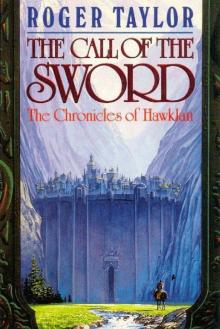 The call of the sword tcoh-1
The call of the sword tcoh-1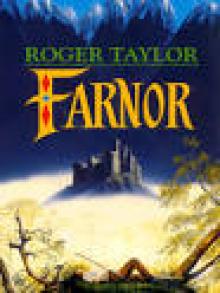 Farnor
Farnor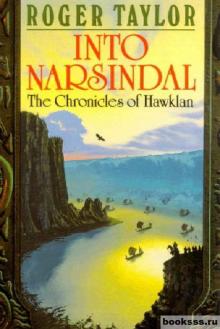 Into Narsindal
Into Narsindal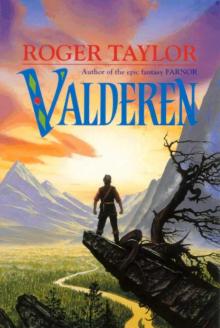 Valderen ft-2
Valderen ft-2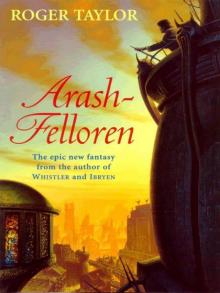 Arash-Felloren
Arash-Felloren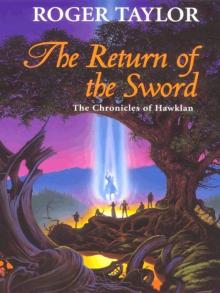 The Return of the Sword tcoh-5
The Return of the Sword tcoh-5![Ibryen [A sequel to the Chronicles of Hawklan] Read online](http://i1.bookreadfree.com/i1/03/26/ibryen_a_sequel_to_the_chronicles_of_hawklan_preview.jpg) Ibryen [A sequel to the Chronicles of Hawklan]
Ibryen [A sequel to the Chronicles of Hawklan]![The Call of the Sword [Book One of The Chronicles of Hawklan] Read online](http://i1.bookreadfree.com/i/03/24/the_call_of_the_sword_book_one_of_the_chronicles_of_hawklan_preview.jpg) The Call of the Sword [Book One of The Chronicles of Hawklan]
The Call of the Sword [Book One of The Chronicles of Hawklan]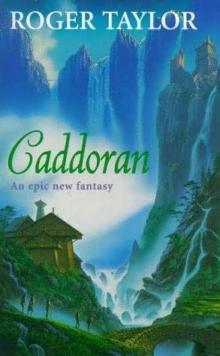 Caddoran
Caddoran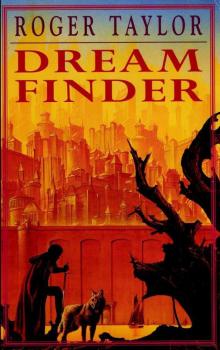 Dream Finder
Dream Finder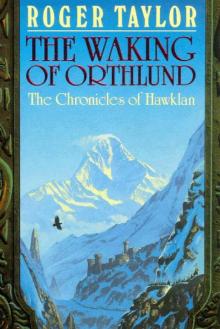 The Waking of Orthlund
The Waking of Orthlund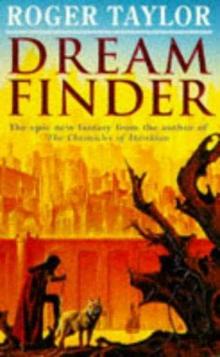 Dream Finder cohs-1
Dream Finder cohs-1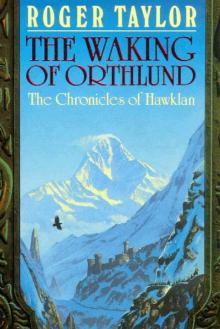 The waking of Orthlund tcoh-3
The waking of Orthlund tcoh-3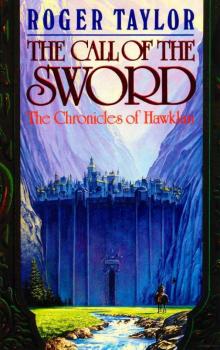 The Call of the Sword
The Call of the Sword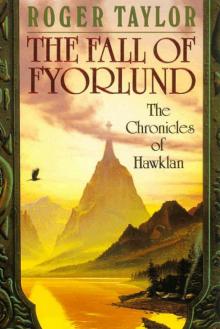 The fall of Fyorlund tcoh-2
The fall of Fyorlund tcoh-2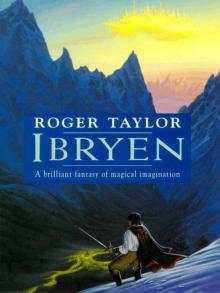 Ibryen
Ibryen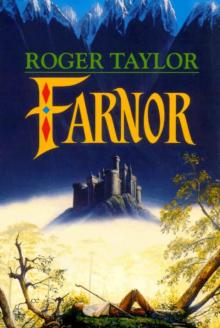 Farnor ft-1
Farnor ft-1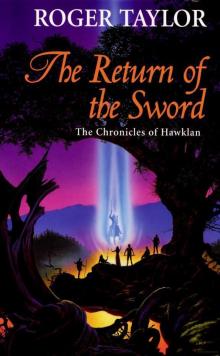 The Return of the Sword
The Return of the Sword![Into Narsindal [Book Four of The Chronicles of Hawklan] Read online](http://i1.bookreadfree.com/i2/04/06/into_narsindal_book_four_of_the_chronicles_of_hawklan_preview.jpg) Into Narsindal [Book Four of The Chronicles of Hawklan]
Into Narsindal [Book Four of The Chronicles of Hawklan]![Valderen [The Second Part of Farnor's Tale] Read online](http://i1.bookreadfree.com/i2/04/05/valderen_the_second_part_of_farnors_tale_preview.jpg) Valderen [The Second Part of Farnor's Tale]
Valderen [The Second Part of Farnor's Tale]![The Fall of Fyorlund [Book Two of The Chronicles of Hawklan] Read online](http://i1.bookreadfree.com/i2/04/08/the_fall_of_fyorlund_book_two_of_the_chronicles_of_hawklan_preview.jpg) The Fall of Fyorlund [Book Two of The Chronicles of Hawklan]
The Fall of Fyorlund [Book Two of The Chronicles of Hawklan]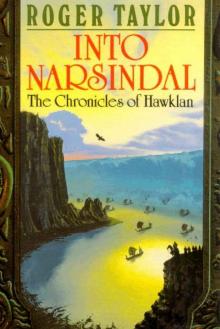 Into Narsindal tcoh-4
Into Narsindal tcoh-4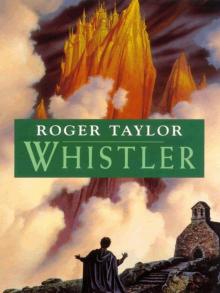 Whistler
Whistler![Whistler [A sequel to The Chronicles of Hawklan] Read online](http://i1.bookreadfree.com/i2/04/12/whistler_a_sequel_to_the_chronicles_of_hawklan_preview.jpg) Whistler [A sequel to The Chronicles of Hawklan]
Whistler [A sequel to The Chronicles of Hawklan]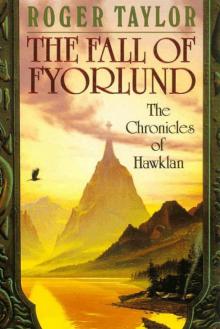 The Fall of Fyorlund
The Fall of Fyorlund![The Waking of Orthlund [Book Three of The Chronicles of Hawklan] Read online](http://i1.bookreadfree.com/i2/04/11/the_waking_of_orthlund_book_three_of_the_chronicles_of_hawklan_preview.jpg) The Waking of Orthlund [Book Three of The Chronicles of Hawklan]
The Waking of Orthlund [Book Three of The Chronicles of Hawklan]